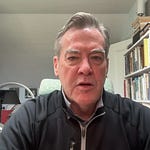Copyright (2025)
All Rights Reserved
BASED ON TRUE EVENTS
(1)
Nobody remembers Joe Small but I can’t ever forget him.
Call me Lu because that’s what Joe called me from the very first night to the last. I was there in the flesh for most of it. Joe’s letters from prison fill in the holes, and don’t forget the good long time we had here together by the shore after the war. When Joe got near the end he and I had all day to talk about what happened in Port Chicago, California, when we were young.
So don’t go telling me or anyone breathing that Mrs. Joe Small is the wrong person for this particular job of recounting. Don’t tell the former Lu Williams to wait your turn or to wait at all because like I told Joe I am done waiting. I am not asking your permission to tell this story. You can read it or leave it but this is the closest anyone is going to get to what really happened to Navy Seaman Joe Small when I was nothing but a girl and World War II was over but for the killing.
I remember the night I first saw Joe downtown in July of 1944. I was just out of high school but old enough for Momma to let me out by myself if I promised to be back by midnight. We lived in two rooms in a falling-down house and it was all Momma could do to keep that broken-down roof over our head one month at a time.
I kissed Momma and headed to the Gold Coast Saloon by my lonesome and pushed through the batwing doors to the bar. It was a high time in Port Chicago the night I met Joe. Couples were swinging to swing music with spins and whirls and flips. Sailors from the U.S. Navy base were drinking beer from paper cups because Telly, the Black bartender, was afraid Black Sailors might mistake a broken bottle for a deadly weapon in a time of war. Every man in the Gold Coast was Black Navy, except for those two white MPs. All the girls were Black, too—or colored, as everybody called us before they learned the word Negro.
Joe’s friends—Honey, King, and C.J.—were sitting in the back with some girls but I was staring straight at Joe without him looking back yet. He was not a tall man, not even five-foot-seven in his boots, and tiny compared to King even with King sitting down with a working girl on either knee. But Joe had something about him, something I could see when he came over to the bar. I still can’t explain it.
Can I get it in the bottle, Telly? Joe says. You know I don’t want any trouble.
Not in this life, Sailor, Telly says.
Telly’s bald Black head sat above a white beard down to his chest. The beard fell just short of the suds he poured into a white paper cup.
Can I at least get a ham-and-cheese sandwich? Joe says.
Telly wiped his hands on a white apron so dirty his hands came up worse.
We have an agreement with the establishment across the street, Telly says. They don’t sell no beer and we don’t serve no food.
Telly? Joe says. You even know my name?
Course I do, Sailor, Telly says without saying Joe’s name.
I did not know Joe’s name either but that was coming. He was drinking from his paper cup at the bar when the two MPs from Shore Patrol came up to him on either side like he had to be in some kind of trouble. The white MPs were the only ones drinking beer from bottles in the Gold Coast Saloon.
How you doing, Chief? The first MP says.
Why you calling me “Chief?” Joe says.
Chief Petty Officer, the second MP says. Just a matter of time, Joe.
That’s what we hear, the first MP says. Just saying.
Joe let go with his big fat laugh, bigger and louder than I would have expected from a man his size. My guess was it took a lot for Joe to let go like that. Turned out I was right. Joe liked to keep it all in tight no matter what.
Don’t forget to salute, Joe says to the two MPs.
They toasted him with their bottles.
Joe took his beer and went back to a table in the back with his friends. I walked to the far end of the bar so I could hear. Don’t ask me why but even before I knew his name I wanted to be close to Joe Small. Sailors were trying to buy me drinks right and left but I had already made up my mind about him.
King still had the two girls on his lap. Honey had another one massaging his neck. C.J. looked like he was trying to look crazy on purpose—he had sneakers on with his uniform but they were untied—with his nappy hair going every which way like he was plugged into a socket.
Right there, girl, Honey says. Where it hurts.
The girl kept working his neck.
Uh-huh, Honey says. You got it. I’m going to die and go to heaven.
This is only going one place, C.J. says, and it ain’t heaven.
You working girls? Joe says.
No charge for a neck rub, says the girl rubbing Honey.
Don’t worry, Sailor, says one of girls on King’s lap. We got ways to make it worth your while.
The other girl got up from King’s lap and started to play with C.J.’s crazy hair from behind.
Careful boys, Joe says. Navy man’s always got a target on his back.
Joe crushed the white paper cup in his hands and left it on the table. He walked by me through the batwing doors and out into the street.
I followed him to The Tender Ribs. Inside Joe was considering the food under a long glass counter. Cornbread. Chicken. Pork Chops. But no tender ribs in the Tender Ribs Cafe.
He took chicken and cornbread on a plate to one of the tables. He ate some chicken. He slopped butter on the cornbread and took a bite, a big one. Then he held up the cornbread for closer inspection before he took another man-sized bite to finish it off. I sat down at the next table before Joe even knew I was alive.
Coffee, Sailor? the waitress says.
Joe nodded and she poured him a cup and left the check on the table for $1.75.
Sir? I say to Joe. I don’t feel so good. Could you please take me home?
Joe gulped. Then he gulped down the coffee.
You playing me? he says.
I like to play, I say.
I don’t even know your name, he says.
It’s “Lu.” So now you do.
The Waitress was smiling, watching Joe and me right in front of her.
Wind at your back, Sailor? she says.
Always comes up when you’re not looking for a push, Joe says.
Joe put down $2 on the table and off we went.
Why did Joe Small walk me home that first night?
I had on my short coat and a pleated skirt that showed off my high waist. My cheekbones were high too to go with big eyes and big eyelashes. I knew something about the world because I had a body far enough ahead of my years for grown men to take a second look then a third.
I was a young girl without being too young.
There was something hard about Joe I liked right away, but something soft I liked even more. And I liked the way he kept sneaking looks at me when he thought I wasn’t looking.
We went past The Star, the only movie theatre in town. Anchors Aweigh was playing. Signs saying “Drama” and “Comedy” hung on either side of the marquee in the same letters. We walked past a church with a high steeple to the waterfront on Fourth Street where shabby one-story buildings on stilts needed paint bad. All of them seemed to be leaning over the Bay like they missed the boat—and that was the nice part of town. We kept strolling down the road.
So why did you enlist in the Navy? I say
Got to start somewhere, Joe says. Or end up nowhere.
You’re nowhere, all right, I say. Right in the middle of Nowhere, California.
Navy’s a way to get a leg up, Joe says.
How can you tell?
They going to make me a Chief Petty Officer.
Is that good? Being Petty?
You in charge of the enlisted man. Right below the Officers. Better pay. First step on the ladder.
Why can’t they just make you an Officer instead?
Joe had no answer for that.
Oh, I say. I see.
Chief Petty Officer the best colored can do in the Navy. But things will be different after the war. Better for all of us. You wait and see.
I got no time to wait, I say.
I’m going to get me a crew back home in New Jersey. Colored
and white.
White men working with a colored man?
Working for me. Why not? No law against it. I’ll start small. Build one house. Then another. Then build my own house. Get married. Have a family. Lay my roots down on the Jersey shore. Walk on the beach with my wife and kids. That’s my dream.
I kept walking and smiling, liking the picture, liking Joe even more.
You got somebody in mind, Sailor boy? I say.
Do you? Joe said.
I stopped to look him in the face.
You never know, I say. A girl might get lucky.
I run-skipped ahead.
Joe caught up and we were side-by-side again. Suddenly he looked at his watch.
If I miss the bus they throw me in the Brig, he says.
He broke into a trot.
What’s your name, Mr. Chief Petty? I say.
Joe, he says. Joe Small.
Easy to remember, I say. Hard to forget.
Joe ran even faster to catch the bus back to the base.
You know where to find me, Joe Small! I shouted after him. Maybe I’ll be waiting!
Joe disappeared around the corner but I kept looking after him for a long time before the long walk home.
Without Joe, I might still be nowhere. But without me, where would Joe be?
(2)
Nobody ever said Joe Small was a hero except me. And I say being a hero can kill you if you let it.
The night we met he went back to The Barn, Barracks B for Blacks in the Navy, bleak as can be. Joe had a cot in the middle of fifty Sailors and Seamen looking for whatever sleep they could find between the scares and nightmares about the next day and every day after that.
Joe told me he would look at the ceiling for a long time before dozing off—then he would jerk awake, breathing hard, scared half to death.
Joe had no way out. None of the Blacks in Barracks B did.
He was the first one up as usual the next morning. Everyone else was asleep except for C.J. taking a whizz on his bunk.
You keep doing that, Joe says to C.J., they going to know you not crazy.
Loony Tunes my ticket out of here, Joe, C.J says.
C.J. made a crazy face.
You’re the only guy in Port Chicago not crazy, C.J., Joe says. So they’re not giving you no Section 8.
Crazy not to. Just wait till I get my shock treatment. ZZZzzzzzzzzz!
C.J.’s body went full-body shock then right back to normal. He winked at Joe and left the barracks barefoot and in his underwear with scars on both legs and his sneakers tied around his neck. He was limping for real. Joe said C.J. had saved them all on the dock at Port Chicago by knocking a bomb into the water with both feet before it could explode. That was the day C.J. decided he had to be crazy to spend another minute in the U.S. Navy loading bombs.
Joe heard clinking and clanking out the window and there was C.J., still barefoot, tossing horseshoes in his skivvies.
Clink…. Clank….
Joe had to laugh at that. They all had to be crazy to do what they were doing but C.J. was the only one ready to admit it.
The Black Chief Petty Officer Donald Bowie, as tall and hard as a light-heavyweight, barged into the all-Black barracks same as every morning.
Fall out you sons of Satan! Chief Bowie shouts. Fall out!
Chief Bowie was flanked by four other Chief Petty Officers, all Black, all rousting out Black Sailors and Seamen in Barracks B. The Chief Pettys were flipping them off the mattresses as necessary and cussing them out as a matter of course.
Chief? Joe says. You ask the Lieutenant about my promotion?
Delgado says Chief Petty Officer coming your way, Chief Bowie says.
I’m doing the job now, Chief. Calling the cadence. Keeping the men in line. Trying to keep everybody safe. I deserve the money, the benefits. You know that better than anyone.
You already better than a Chief Petty.
How’s that? Joe says.
The enlisted men don’t hate you, Chief Bowie says.
What more do I got to do? Joe says.
Navy not looking for colored troublemakers in wartime. Got enough of those already. Just keep your head down. You’ll be all right.
I need a leg up, Chief. War be over soon.
I’ll do everything I can to help you, Joe. You got my word.
Thanks, Chief. That’s all a man can ask.
Joe finished up making his bed perfect. The others scrambled lickety-split to make theirs at the last minute. Chief Bowie and the Chief Pettys were bouncing dimes off bedspreads to make sure the silver bounced high enough to mean a bed made right.
Bowie dropped a dime on Honey’s bed but got no bounce. He calmly put the dime back into his pocket before he ripped the bed apart.
Lieutenant Vincent Delgado’s voice came over the intercom.
Now hear this! he shouts. Now hear this! Division Four, Barracks B, fall out! Fall in!
Seaman Malcolm Hunnicut came back from the John to see his bed upside down. Honey started cursing Chief Bowie, the Navy, and the whole damn war under his breath.
The Sailors rushed out of the barracks pulling on shirts and pants and putting on hats. They all fell in. Honey, still pulling on his shirt, made it outside just in time.
Joe was the only Black enlisted man not lined up. Not with the white Officers or Black Petty Officers, either. Alone.
Lieutenant Delgado, all chest hair and hot air, walked up and down the line like he was General George Patton’s kid brother.
What’re you waiting for Small? Lieutenant Delgado says. You’re the ringleader of this sorry circus.
Division? Joe shouts. Attention!
The Sailors spread the word with shouts, elbows, and shoves until eighty men were mushing around in the mud, climbing onto The Cattle Car—that’s what they called it—to get to the dock at Port Chicago.
Listen up, swabbies, Delgado says at the dock. We need 250 tons of ammo for this ship to sail. You get it done by 15:30, you can all leave for leave. Move ’em out, Small.
Joe, apart from the rest, called the marching cadence right on the money like he did every day. The men followed his lead, heading for the clanking and clinking sounds of ammo colliding on the dock.
Division? Joe shouts. Halt! Fall out!
Dozens of curved railroad tracks led to two oversized U.S. Navy transport ships ready to carry tons of missiles and ammunition on the Sacramento River on their way to World War II in the Pacific Theater.
Sailors and Seamen went to their posts, but Joe stopped to take in
the brand-new Liberty transport ship waiting for Barracks B.
Ain’t nothing wrong with her, Joe says.
He stepped around five one-ton bombs in a mesh wire net on the dock to find a new winch waiting for him. He smiled and grabbed two handles six inches long and belt-high. Joe was standing on a rubber mat at the edge of the hold when he looked down into the Liberty. Sailors were climbing down three decks on ladders welded to the side of the hull. The ship was completely empty all the way down, fifty feet at least.
Joe cranked his new winch. Honey and King shifted the wire net around the bombs.
We good, men? Joes says.
Ready steady, Joe, Honey says. Can’t win this man’s war if these bombs woke up.
Everyone on the dock was jittery, sweating, scared. Bombs clanked into each other. One of them broke loose and clunked into the side of the hull. Sailors flinched and cringed when they weren’t cursing like Sailors.
Everyone except Joe that is. Joe made the Sign of the Cross. He was not religious but he did not want to end up dead.
Lieutenant Delgado left the shavetail louies—the white Officers—on the dock and came at Joe waving his arms. All the Officers at Port Chicago were white of course. Maybe you guessed as much.
Division Six is kicking our ass every which way from Sunday, Joe! Delgado says. We’re 100 tons behind this week already!
Delgado was sticking his finger in Joe’s chest.
You got to make it up, Joe! I got money on this!
We’re pushing too hard, Lieutenant, Joe says.
I need you to lift 100 tons by 15:30. Or you can forget about leave. I mean business!
We can forget about everything if we blow up.
If we do, it won’t matter. And if we don’t, it won’t matter, either. Stop wasting time, Small.
On shore just 100 feet away, Delgado and the shavetail louies were not even paying attention because they were too busy putting down bets.
He could lose his bet, Joe says to Honey and King. We could all lose our lives. Must be an easier way to kill a man.
They like to lynch us, Honey says.
Got plenty of rope in the Navy, King says.
Honey, King, and the other Black Sailors and Seamen from Barracks B put their shoulders into thousand pounders, rolling them into a net controlled by Joe with his winch. Seaman Sloan, nervous and smaller even than Joe, was clanking bombs into each other from boxcars to the boat.
Easy, Snake! Joe says. We’ll be dead soon enough.
Same old, same old, King says. They’d rather blow us up than train us right.
King shook his head at the shavetail louies. The white Officers had no idea how close they were coming to disaster every day all day long.
Bombs piled up in the hold almost to the top. Delgado came back to Joe and tapped his watch.
We got depth bombs in Hold One, sir, Joe says. The five-and-three-eighths in Number Two. Five thousand pounders in Three. The 20- and 40-millimeter shells in Four. And the fragmentation cluster bombs in Five. We on ten tons per hatch per hour, Lieutenant.
Chief Bowie told me about your talk, Delgado says. You take care of me, Joe, I’ll take care of you. Are we clear?
Joe lit up like a kitchen match. Maybe all off this would turn into something good if he could just get through it.
Aye-aye, sir! Joe says.
Joe was wincing, sweating through his shirt, holding his breath, with every second life and death. He laid down the last bomb gentle as a baby before he finally let his breath out.
On the dock, Lieutenant Delgado was waving money in the air, collecting on his bet from three different white Officers.
Thanks, Joe, he yells. I owe you.
Joe was about as happy as he was ever going to get on that base at Port Chicago. Nobody had blown up. Chief Petty Officer was within his reach.










